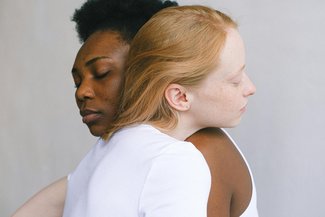
Agenda Alliance responds to reform of the Mental Health Act
We respond to Wes Streeting's announcement that the Department of Health intends to reform the Mental Health Act.

16 Dec 2024
In this blog, Policy and Public Affairs Officer Tara Harris reflects on our policy work over the past year, and highlights key areas of focus moving into 2025.
The 2024 General Election presented a landmark moment, and a potential turning point for policy. After years of austerity, a global pandemic, and the rising cost of living, the introduction of a new Labour Government saw politicians look upon the policy challenges we face with fresh eyes. Since July we have had major policy announcements across government departments, including the introduction of a Women’s Justice Board, long-promised reform of the Mental Health Act, and the introduction of a Civil Society Covenant, all of which have implications for the multiple unmet needs of women and girls.
The General Election earlier this year offered a significant campaigning opportunity, and a meaningful chance to demonstrate the strength of our alliance. We seized this by writing to the leaders of the Labour, Conservative, Liberal Democrat and Green parties, supported by over 60 organisations, calling on each of them to commit to creating a post for a Secretary of State for Women and Girls.
Women and girls deserve someone at the highest level of government to champion their needs, matching the seriousness of multiple unmet needs with serious political resource. They deserve someone who can work across systems and siloes to design preventative, holistic and gendered interventions.
Ahead of the election, Anneliese Dodds, then Shadow Minister for Women and Equalities, had announced that Labour would be the first party to create a Secretary of State of Women and Equalities. Whilst this role didn’t have the dedicated focus on women and girls we recommended, we were encouraged by the prospect of this role being made Cabinet level. However, once Labour had won and the Cabinet had been announced, the role of Women and Equalities remained a Ministerial post. The job is also currently shared between two MPs who have other roles in government, Bridget Phillipson, Secretary of State for Education, and Anneliese Dodds, Minister for the Foreign, Commonwealth and Development Office. You can read our response to the Ministerial announcement here.
We know that multiple unmet needs are often interconnected, complex and gender-specific. Single-issue policy responses, which try and address these problems one at a time, ignore the connections between them, causing trauma and harm to escalate. This work needs senior political backing to have a lasting transformative impact. We will continue to call for a dedicated Secretary of State for Women and Girls, and we hope to work with the new Government to achieve this.
Read more about our ‘We’re Calling SOS’ campaign, including our general election manifesto and policy recommendations, here.
In September, Shabana Mahmood, the Secretary of State of Justice, announced a Women’s Justice Board. We were highly encouraged by this announcement, especially given one of the key areas of focus for the Board would be young women in custody.
For the last four years we have been campaigning for the needs of young women in the criminal justice system. Young women make up a minority in the justice system on account of both their age and their gender. These young women often face multiple unmet needs, with their life histories underpinned by experiences of violence, abuse and exploitation, poor mental health, substance misuse, poverty, and having no safe place to call home. There is currently no dedicated policy response for young women in touch with the justice system, meaning their needs often go unmet.
In November we, alongside 26 of our member organisations, wrote to the Justice Secretary, along with relevant Ministers, calling for a focus on prevention and diversion in the young women’s strand of work. If the Women's Justice Board is to succeed in its stated aims, it must meaningfully engage with young women and the specialist organisations which support them.
Read our blog on the announcement of the Women’s Justice Board here.
Ahead of the General Election in July, the Labour Party announced a commitment to halve violence against women and girls (VAWG) in the next decade. Now in government we have been pleased to see work tackling violence and abuse being prioritised, with both Jess Phillips and Alex Davies-Jones appointed as Ministers for VAWG (Home Office and Ministry of Justice respectively). However, at the end of 2024 we have heard little about how this commitment will be practically achieved, with Yvette Cooper admitting that the pledge was ‘ambitious’.
A first step would be to create long-term, sustainable funding streams for community services that support survivors of abuse and violence. In Autumn we heard the first Budget statement from the new Government’s Chancellor, Rachel Reeves. The Budget acknowledged the current poor state of our public services, and announced dedicated funding for local authorities, education and the NHS. Whilst this is essential to support women and girls facing multiple unmet needs, dedicated funding for specialist women and girls’ services who support survivors is critical. These organisations have provided vital support for women over the last ten years of austerity, yet many are struggling to keep their doors open, or have closed, with the rising cost of living and issues of staff retention.
We look forward to working with our Alliance and government in the new year to discuss next steps in making their commitment to halve VAWG a reality.
You can read our full statement on the 2024 Autumn Budget here.
Ahead of the 2024 General Election the Labour Party pledged to modernise the outdated Mental Health Act if they won. With this in mind, we were pleased to see the Government’s Mental Health Bill immediately begin its passage through Parliament.
Amongst the Bill’s objectives it would remove the use of prison as a place of safety. A new independent monitoring board report from HMP Bronzefield showed that the number of women held there under the Mental Health Act (MHA) had doubled in the last year, from 9 to 19 women. When women are held in prison under the MHA, they cannot access the psychiatric support they need, and their needs can worsen. The report found that transferring these women to secure hospitals had been delayed due to lack of beds and issues of funding.
The Bill provides an opportunity to address these inequities and ensure women get the right support and placement when in mental health crisis. However, an increase in long-term and sustainable funding in mental health services is crucial, to ensure women and girls mental health needs are met. This should include commitments to ensure staff receive trauma-, age-, gender- and culturally-responsive training.
Alongside these vital reforms, a greater focus on the mental health needs of girls and young women is needed. Girls and young women are disproportionately impacted by mental health challenges, and are more likely to experience certain anxiety and depression than boys and young men, yet much of the support on offer is not gender-responsive and is underfunded. Recent data shows that nearly one third of young women aged 16 to 24 have symptoms of depression or anxiety, experiencing this at three times the rate of their male counterparts and at higher rates than older women.
You can read our most recent response to proposed reforms to the Mental Health Act here.
There have been a wealth of policy announcements over the last few months, with more anticipated to follow as we move into 2025. We look forward to working with government to deliver these, and will be working with our members and women and girls with lived experience of multiple unmet needs to call for all new measures to be co-produced and gender-responsive.

We respond to Wes Streeting's announcement that the Department of Health intends to reform the Mental Health Act.

We respond to the Lord Chancellor Shabana Mahmood MP's announcement of the creation of a Women's Justice Board at Labour Conference.

We respond to the new Labour government's first budget announcement.